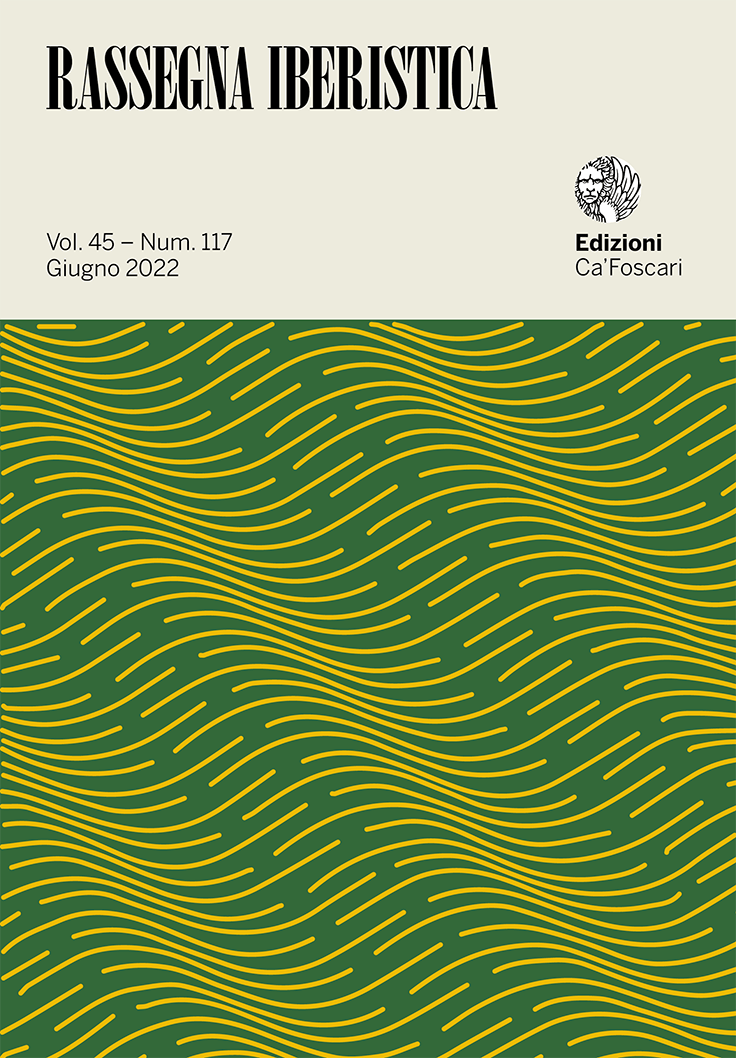Journal |
Rassegna iberistica
Journal issue | 45 | 117 | 2022
Research Article | Resisting Hegemonic Discourse
Resisting Hegemonic Discourse
The Tension Between Document and Fiction in Sergio González Rodríguez’s Huesos en el desierto
Abstract
Scholars point to the emancipatory potential of contemporary Latin American chronicles, noting that they offer a counterhegemonic discourse on gender violence. However, little attention has been paid to the ways in which this discourse is constructed and made effective. Through the textual analysis of Huesos en el desierto (2002), a chronicle by Sergio González Rodríguez, this article will show how the hybridity of this work reinforces its critical potential. Cognitive poetics will be used to analyse how different techniques used by González Rodríguez not only consolidate his ethos but also provoke a reflection in the reader on the distinctions between fiction and non-fiction. In addition to shedding light on how the genre of the chronicle works, this article aims to offer a new interpretation of Huesos en el desierto. Moreover, it will demonstrate the usefulness of a cognitive approach for a better understanding of contemporary Latin American chronicles.
Submitted: Feb. 18, 2021 | Accepted: July 6, 2021 | Published June 22, 2022 | Language: es
Keywords Violencia de género • México • Chronicle • Cognitive poetics • Literary genre • Gender violence • Género literario • Poética cognitiva • Crónica • Mexico
Copyright © 2022 Eva Van Hoey. This is an open-access work distributed under the terms of the Creative Commons Attribution License (CC BY). The use, distribution or reproduction is permitted, provided that the original author(s) and the copyright owner(s) are credited and that the original publication is cited, in accordance with accepted academic practice. The license allows for commercial use. No use, distribution or reproduction is permitted which does not comply with these terms.
Permalink http://doi.org/10.30687/Ri/2037-6588/2022/18/004





